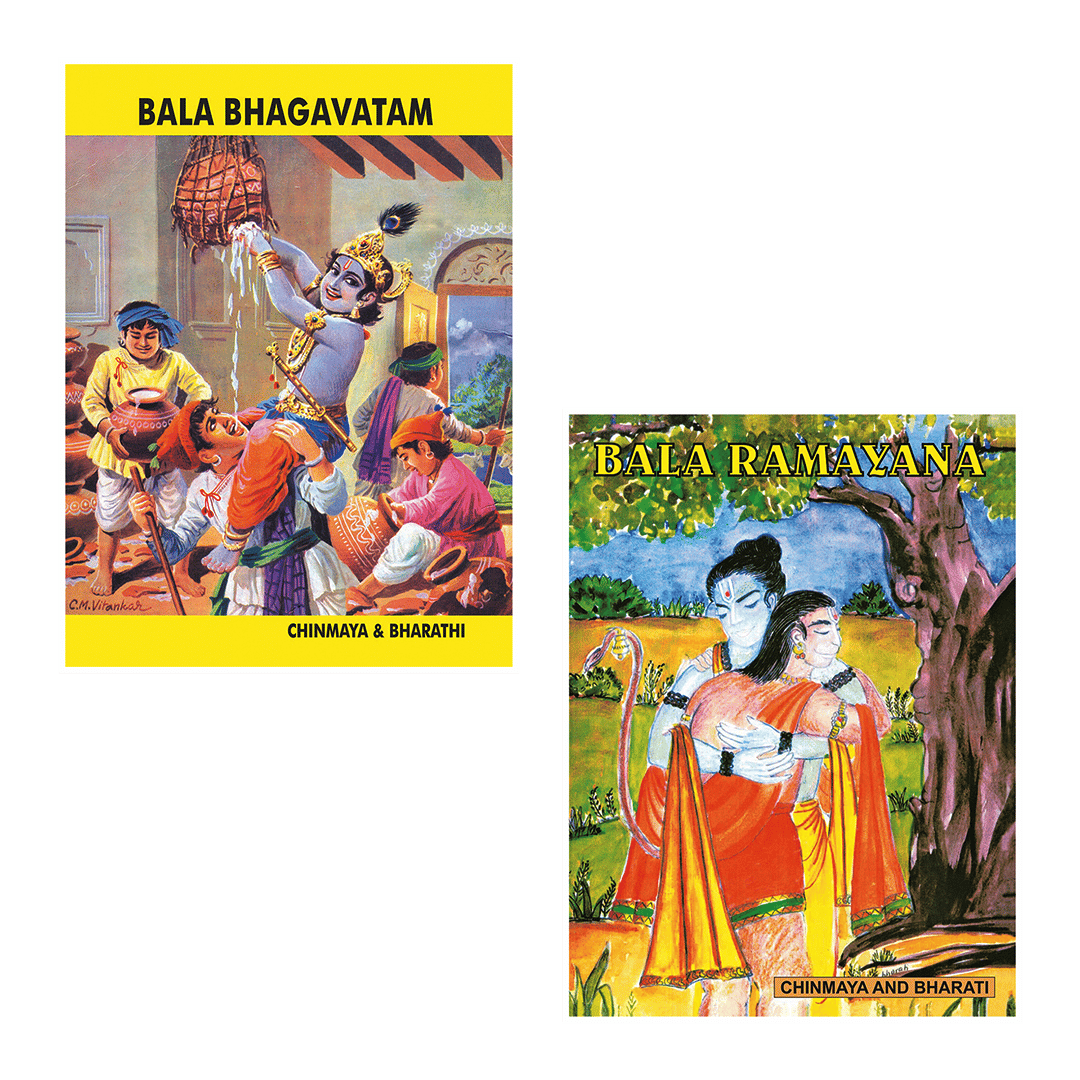Swami Chinmayananda, Bharati Sukhtankar
Bala Katha (Pack of 2) is backordered and will ship as soon as it is back in stock.
Couldn't load pickup availability
Make a bulk order enquiry
Product Description

Inspiring Right Living

Rooted in Wisdom

An Offering of Love

Product of Bharat
Product Description
Bala Ramayana - The epic RAMAYANA written by Valmiki thousands of years ago gave inspiration to several litterateurs in India through the centuries.
This book, especially written for children by Bharati Sukhtankar with the assistance of Swami Chinmayananda, awakens in one a sense of beauty and wonder. The story of Shri Rama is not just narrated as an ancient tale full of sound and fury signifying nothing. The narration is interspersed with descriptions of the sights and sounds of Nature.
Bala Bhagavatam - The learned and the erudite revelled in the depth of the philosophy, packed away in all the serious "discussions"and "talks" that happen all along this glorious work of Vyasa.
The ever-smiling, never-weeping Krishna should be the ideal for modern world of children everywhere growing as they are, in a horrid atmosphere of fear, passions and suspicions.












